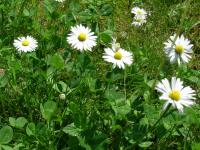v. t. [ L. abludere; ab + ludere to play. ] To be unlike; to differ. [ Obs. ] Bp. Hall. [ 1913 Webster ]
a. [ L. abluens, p. pr. of. abluere to wash away; ab + luere (lavere, lavare). See Lave. ] Washing away; carrying off impurities; detergent. --
adv. & a. [ Pref. a- + blush. ] Blushing; ruddy. [ 1913 Webster ]
n. [ L. ablutio, fr. abluere: cf. F. ablution. See Abluent. ]
a. Pertaining to ablution. [ 1913 Webster ]
n. [ LL. abluvio. See Abluent. ] That which is washed off. [ R. ] Dwight. [ 1913 Webster ]
n.
v. t. To make swollen and disfigured or sullied by weeping;
n. the dark color of a bruise in the flesh, which is accompanied with a mixture of blue. “To pinch the slatterns black and blue.” Hudibras. [ 1913 Webster ]
v. t. & i. [ Cf. Bleb, Blob. ] To swell; to puff out, as with weeping. [ Obs. ] [ 1913 Webster ]
n. [ See Blobber, Blob, Bleb. ] [ 1913 Webster ]
At his mouth a blubber stood of foam. Henryson. [ 1913 Webster ]
v. i.
She wept, she blubbered, and she tore her hair. Swift. [ 1913 Webster ]
v. t.
Dear Cloe, how blubbered is that pretty face! Prior. [ 1913 Webster ]
p. p. & a. Swollen; turgid;
n. The act of weeping noisily. [ 1913 Webster ]
He spake well save that his blubbering interrupted him. Winthrop. [ 1913 Webster ]
a.
n. [ Cf. Ir. blocan a little block, Gael. plocan a mallet, W. plocyn, dim. of ploc block; or perh. connected with E. blow a stroke. Cf. Block, Blow a stroke. ] A short stick, with one end loaded, or thicker and heavier that the other, used as an offensive weapon. [ 1913 Webster ]
a.
The ladies were very blue and well informed. Thackeray. [ 1913 Webster ]
Blue asbestus.
Blue black,
Blue blood.
Blue buck (Zool.),
Blue cod (Zool.),
Blue crab (Zool.),
Blue curls (Bot.),
Blue devils,
Blue gage.
Blue gum,
Blue jack,
Blue stone
Blue jacket,
Blue jaundice.
Blue laws,
Blue light,
Blue mantle (Her.),
Blue mass,
Blue mold
Blue mould
Blue Monday,
Blue ointment (Med.),
Blue Peter (British Marine),
Blue pill. (Med.)
Blue ribbon.
Blue ruin,
Blue spar (Min.),
Blue thrush (Zool.),
Blue verditer.
Blue vitriol (Chem.),
Blue water,
Big Blue,
To look blue,
True blue,
For his religion . . .
'T was Presbyterian, true blue. Hudibras. [ 1913 Webster ]
n.
Berlin blue,
Mineral blue.
Prussian blue.
v. t.
n. (Zool.)
n. The hero of a mediæval French nursery legend, who, leaving home, enjoined his young wife not to open a certain room in his castle. She entered it, and found the murdered bodies of his former wives. -- Also used adjectively of a subject which it is forbidden to investigate. [ 1913 Webster ]
The Bluebeard chamber of his mind, into which no eye but his own must look. Carlyle. [ 1913 Webster ]
n. (Bot.)
n. [ Cf. Blaeberry. ] (Bot.) The berry of several species of
n. (Zool.) A duck of the genus
n. (Zool.) A small song bird (Sialia sialis), very common in the United States, and, in the north, one of the earliest to arrive in spring. The male is blue, with the breast reddish. It is related to the European robin. [ 1913 Webster ]
Pairy bluebird (Zool.),
adj. unable to see the color blue or to distinguish the colors blue and yellow.
n. inability to distinguish blue and yellow.
n.
--
adj. of aristocratic birth and refined upbringing.
n. (Zool.) A small European bird; the blue-throated warbler. [ 1913 Webster ]
n.
n. One dressed in blue, as a soldier, a sailor, a beadle, etc. [ 1913 Webster ]
adj.
n. (Zool.) The blue-cheeked honeysucker of Australia. [ 1913 Webster ]
a.
fld>(Bot.) a grasslike plant (Sisyrinchium anceps), with small flowers of a delicate blue color. [ 1913 Webster ]
n. (Zool.) A species of whitefish (Coregonus nigripinnis) found in Lake Michigan. [ 1913 Webster ]
n. (Zool.)
☞ The name is applied locally to other species of fishes; as the cunner, sea bass, squeteague, etc. [ 1913 Webster ]
n. One of a class of paupers or pensioners, or licensed beggars, in Scotland, to whim annually on the king's birthday were distributed certain alms, including a blue gown; a beadsman. [ 1913 Webster ]
(Bot.) A species of grass (Poa compressa) with bluish green stems, valuable in thin gravelly soils; wire grass. [ 1913 Webster ]
Kentucky blue grass,
. The Sate of Kentucky; -- a nickname alluding to the blue-grass region, where fine horses are bred. [ Webster 1913 Suppl. ]
.
. The State of Delaware; -- a popular sobriquet. It is said, though the story lacks proof, to have taken its origin from the insistence of a Delaware Revolutionary captain, named Caldwell, that no cock could be truly game unless the mother was a blue hen, whence
Blue Hen's Chickens came to be a nickname for the people of Delaware. [ Webster 1913 Suppl. ]
n. Same as
